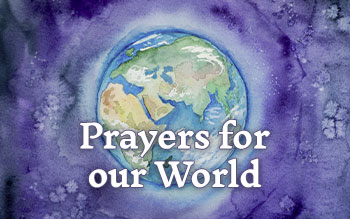Displaying items by tag: femicide
Italy: parliament passes law defining femicide
Italy has taken a major and symbolic step in addressing gender-based violence by unanimously passing a law that defines femicide - the killing of a woman because she is a woman - as a distinct crime punishable by a mandatory life sentence. Symbolically, the vote came on the International Day for the Elimination of Violence against Women, following intense national debate sparked by the murder of 22-year-old Giulia Cecchettin in 2023. Her sister’s call for society to confront deep-rooted patriarchy propelled public demand for change. Under the new law, cases motivated by control, discrimination, or retaliation for ending a relationship will be formally recorded as femicides. Supporters say this recognition exposes the true motivations behind such murders and encourages broader cultural reform. Critics argue that legislation alone cannot solve inequality, and that the definition of femicide is too vague and will prove difficult for judges to implement. Yet many believe this marks a vital shift - a country full of stereotypes about women and notions of male superiority finally naming and confronting a long-hidden crisis. See also World article 1, about the global instances of femicide.
Global: one woman killed by a partner or relative every ten minutes
Violence against women remains a deadly global crisis, with more than 50,000 women and girls killed in 2024 by intimate partners or family members - an average of one life taken every 10 minutes. A new joint report from UNODC and UN Women, released for the 2025 International Day for the Elimination of Violence against Women, warns that femicide persists at alarming levels with no sign of meaningful progress. The figures almost certainly underestimate the true scale due to underreporting, legal gaps, stigma, and lack of accurate data. Experts say economic instability, conflict, displacement and inadequate access to safe housing increase the risks for those trapped in abuse. Digital harassment can escalate into deadly violence, showing how danger often begins with controlling behaviours. Africa recorded the highest rate, followed by the Americas, Oceania, Asia, and Europe. UN Women says coordinated efforts involving schools, workplaces, public services and local communities are needed to spot early signs of violence. The campaigners also called on governments to increase funding for shelters, legal aid and specialist support services.
Kenya: is this man a multiple murderer?
Collins Jumaisi Khalusha has appeared in court after being charged with multiple murders following the discovery of nine dismembered bodies in a Nairobi quarry. Khalusha has supposedly confessed to killing 42 women: his lawyer has claimed he was tortured into confessing, which prosecutors deny. The case has intensified scrutiny on Kenya's police, already under pressure from anti-government protests and accusations of human rights abuses. The bodies, found in sacks, were mostly women aged 18-30. Police say they have found evidence linking Khalusha to the murders, including mobile phones and female clothing at his home. The case has sparked public outrage and renewed focus on femicide in the country: some 500 Kenyan women were murdered between 2017 and January 2024. An independent police authority is investigating potential police involvement. Protests demanding president William Ruto's resignation continue amid the scandal: police chief Japhet Koome has resigned, after pressure to provide answers about the police’s conduct during the protests.
UK: femicide
A femicide census of men’s fatal violence against women during 2019 and 2020 found that, overall, men are killing one woman every three days in the UK. Between 8% and 12% of these killings were by strangers; all other femicide was by men who were current or former partners. These killings by a person known to the woman revealed appalling police failings. The organisation Counting Dead Women reported that the number of women killed by a male in 2021 is higher than the numbers in 2019 and 2020. They say this may increase when they receive responses to their FOI requests to the police. It remains unknown what is behind the increase, but the organisation will be paying close attention to intimate partner femicides and the role of separation. Despite acres of news coverage, politicians' statements, and tweaks to the laws, the femicide figures remain unchanged.
Global: gender-based violence
In South Africa a woman is killed every four hours: ‘Our bodies are crime scenes’. Ornate advertising posters of men accused or convicted of murdering women cover the walls of Argentina’s capital. The word FEMICIDA -woman killer- screams out in large black letters under each name. The posters, and thousands of protesters outside Argentina’s Supreme Court in February, reveal the rage over rampant levels of violence against women. In Turkey’s cities last year thousands rallied, demanding the government does not withdraw from a landmark treaty to prevent and combat violence against women. Globally, trends of female journalists being threatened with physical violence, rape, kidnapping. and other abuses are rising. In Spain’s strawberry fields, migrant women face abuse from bosses who routinely sexually harass and exploit them, when they are attempting to support themselves and their families back home. Also see
Turkey: Prayer Request - Populism and Femicide
On 21 July 2020, 27-year old university student Pınar Gültekin (pictured) was murdered by her ex-boyfriend, becoming another victim of Turkey’s wave of femicides. Gültekin was declared missing for six days before she was found dead, strangled to death for refusing to reconcile with her former partner.
The news of Gültekin’s murder sparked protests across the country, with women taking to the streets in more than ten cities. The largest demonstrations took place across various neighbourhoods of Istanbul, gathering thousands of people. Smaller-scale protests also took place in less-populous Turkish cities including İzmir, Edirne, Mersin and Malatya.
On more than one occasion, women protesting gender-based violence were met with violence themselves. In İzmir, police officers brutally intervened in the protest and several women were beaten. Videos from the event captured scenes of women being manhandled and dragged away by police officers. 12 were taken into custody, although they were later released.
Since the news of the murder of Gültekin, 11 women have met a similar fate. These tragic murders are, unfortunately, in no way isolated incidents. They form part of a larger pattern that has been emerging in Turkey under the country’s increasingly authoritarian Justice and Development Party (AKP) government.
Under the AKP, the number of women killed by men has increased rapidly. Since 2010, more than 3,000 women have been murdered as a result of male violence, with the figure more than doubling over the years. The vast majority of these women were killed for making decisions about their own lives – breaking up with a partner or rejecting men’s advances.
The government’s attempt to turn the Istanbul Convention into a wedge issue has backfired. There is no clear segment of society against it, and according to an opinion poll by Turkey Report only 8.8 percent of the population want to withdraw, and 51.7 percent are not even aware of its contents.
While the number of femicides has steadily increased, the Turkish government has failed to implement measures to protect women or introduce any reforms to tackle gender inequality. According to the Judicial Records statistics in 2019, most of the complaints made by women of sexual and physical violence do not result in a prosecution. This year, Turkey ranked 130th out of 153 countries in the World Economic Forum’s Global Gender Gap Index. Women’s rights activists are outraged by the deteriorating situation that is worsened by the proposal to withdraw from the treaty, with many arguing that it was never properly implemented in the first place.
Source: https://blogs.lse.ac.uk/mec/2020/08/17/populism-and-femicide-in-turkey/
Pray that Turkey's wave of violence against women and femicides would stop immediately
Pray that the current Turkish government would take more actions and responsibilities to prevent these murders
Pray that all Turks would find the true women's right and equality in Jesus Christ and His Gospel of peace





